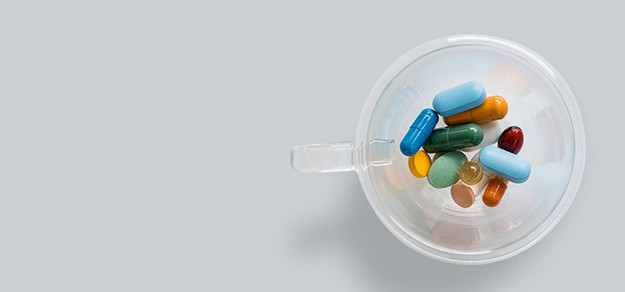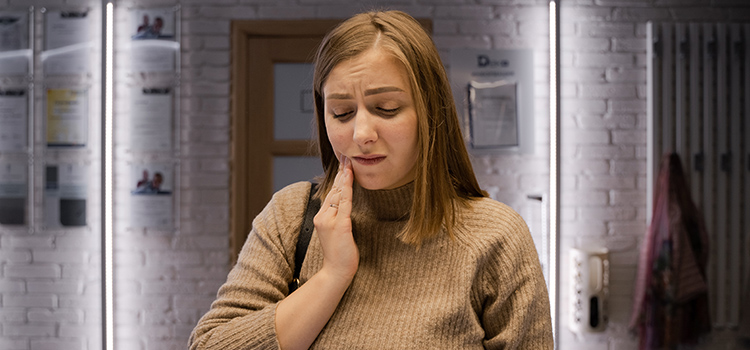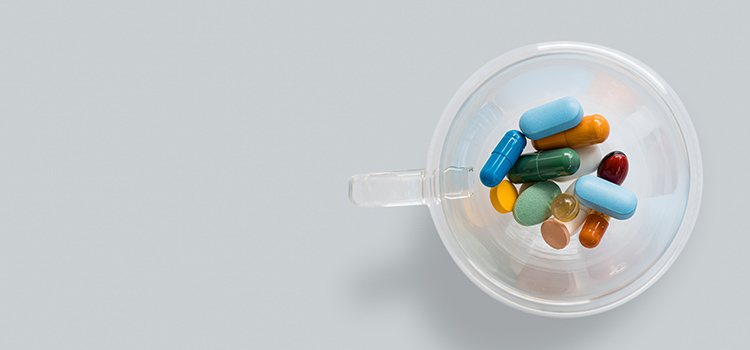Antidepressants And Teeth Grinding
28th Aug 2021

Teeth grinding is thought to have many causes, and it may be the result of a combination of psychological, physical, and/or environmental factors. Conditions such as bruxism, temporomandibular joint disorder (TMJ or TMD), and other sleep disorders have many side effects. These include tooth wear, facial pain, sore jaw muscles, headaches, and clicking/locking jaw. Often, the best way to treat bruxism or TMJ is to identify the underlying cause of the disorder. Understanding the connection between antidepressants and teeth grinding may help you find the root cause of your bruxism.
One of the possible triggers for bruxism is medication use. Certain medications may cause teeth grinding or jaw clenching. If you have existing bruxism, beginning a new medication may potentially make your condition worse.

Can Antidepressants cause teeth grinding?
Although it may sound counterintuitive since antidepressants generally help people relax and reduce muscle tension (particularly those with anxiety), antidepressants can absolutely trigger bruxism (Gomez & Hofman 2020). Unfortunately, no medication is without the risk of adverse effects. Some of these include dry mouth, awake bruxism, sleep bruxism, and TMD.
Specifically, two types of antidepressants have been linked to teeth grinding and clenching in research studies. These include selective serotonin reuptake inhibitors (SSRIs) and serotonin and norepinephrine reuptake inhibitors (SNRIs). Both of these types of drugs work by interacting with neurotransmitters (chemical messengers) in your brain.
A study was conducted on four individuals with depression to identify a connection between antidepressants and teeth grinding. Researchers state, “These observations… suggest an association between serotonin selective reuptake inhibitor (SSRI) treatment and the onset or exacerbation of nocturnal bruxism” (Ellison 1993).
Examples of drugs that may induce or exacerbate bruxism include:
- Paxil (paroxetine)
- Prozac (fluoxetine)
- Celexa (citalopram)
- Effexor (venlafaxine)
- Zoloft (sertraline)
Additionally, some attention deficit hyperactivity disorder (ADHD) medications have been linked to awake bruxism. The most well-known ADHD drug that can cause bruxism is Adderall.
Related Articles:

Why Do Antidepressants Trigger Bruxism?
The Australian Dental Association explains, “Medication-induced bruxism is under-recognised in dentistry.” However, scientists believe antidepressants trigger bruxism because they interact with a brain chemical called dopamine. SSRIs specifically work by suppressing dopamine levels. SNRIs ,on the other hand, increase dopamine levels. Dopamine receptors control some muscle and motor activity, so disturbing these levels can cause unwanted muscle activity. In some cases, this leads to teeth grinding (JADA volume 131 issue 3).
This isn’t an undocumented phenomenon. Beside the connection between antidepressants and teeth grinding, antidepressants have also been linked to other movement disorders such as Parkinson's Disease.
How Do I Know If My Bruxism Is Caused by My Antidepressants?
The best way to determine the cause of your bruxism is to track your symptoms and talk to your healthcare provider. A systematic review of published case reports of SSRI-induced bruxism found, “Symptoms may begin within 3-4 weeks of medication initiation and may resolve within 3-4 weeks of drug discontinuation” (Garrett & Hawley 2018). If that timeline lines up with the appearance of your symptoms, you may have a pretty good idea that your grinding is caused by the medication. However, don’t write off symptoms that occur after that three to four week period, as everybody’s body responds to medication differently.
Even if you are sure that medication caused your teeth grinding, do not simply stop taking your medication. Any change in medication should always be discussed with your healthcare provider. Abruptly stopping antidepressants can be dangerous and can cause withdrawal symptoms. Additionally, stopping the medication is not the only way to solve the problem.
In a study based out of the Mayo Clinic’s Department of Psychiatry and Psychology, Dr. John Michael Bostwick and Dr. Michael Jaffee found that the addition of a medication called Buspar relieved grinding in patients who experienced bruxism due to antidepressant use (Bostwick & Jaffee 1999).
Another common and effective treatment is the medication Buspirone. In the cases mentioned earlier, the most effective remedy was adding Buspirone to the patient’s bruxism treatment plan.
Other potential remedies include adjusting your medication dosage and trying a different antidepressant. Although all SSRIs work similarly, your side effects may vary from one medication to the next, and it may take some time to find the one that works best for you.
It is extremely important to speak to your doctor before you make any changes in your medication or dosage adjustments. He or she may be able to help you determine whether your bruxism is truly caused by antidepressants or whether you might have a different trigger. From there, they will be able to develop a treatment plan to help you manage your symptoms.
Bruxism and Antidepressants
There is a well-researched link between anti-depressive medications and bruxism. Currently, most healthcare professionals believe that SSRIs and SNRIs can cause bruxism because they interact with dopamine levels in the brain. This can lead to a disturbance in muscle and motor activity.
Although antidepressants and teeth grinding can be related, you do not need to get off antidepressants to get your bruxism under control. Adding another medication or changing your dosage might prove beneficial. This will allow you to reap the benefits of your antidepressant while simultaneously reducing your teeth grinding side effects. Before making any changes to your medication, however, be sure to speak to your healthcare provider.
Until you get your bruxism or temporomandibular disorder under control, it’s extremely important to protect your teeth from the effects of teeth grinding and clenching. One of the most common and least invasive ways to protect your teeth is with a mouth guard or splint. Pro Teeth Guard offers custom-fit mouthguards online for an affordable price. Our night guards are made in a professional dental lab using professional materials and processes.
References:
- ADA Writing Staff. (n.d.). PharmaAdvise: Drug-Induced Bruxism. Australian Dental Association. https://www.ada.org.au/News-Media/News-and-Release/Latest-News/PharmaAdvice-Drug-induced-bruxism
- Bostwick, J. M., & Jaffee, M. S. (1999). Buspirone as an antidote to SSRI-induced bruxism in 4 cases. The Journal of clinical psychiatry, 60(12), 857–860. https://doi.org/10.4088/jcp.v60n1209
- Ellison, J. M., & Stanziani, P. (1993). SSRI-associated nocturnal bruxism in four patients. The Journal of clinical psychiatry, 54(11), 432–434.
- Garrett, A. R., & Hawley, J. S. (2018). SSRI-associated bruxism: A systematic review of published case reports. Neurology. Clinical practice, 8(2), 135–141. https://doi.org/10.1212/CPJ.0000000000000433
- Gomez, A. F., & Hofmann, S. G. (2020, May 26). SSRIs and Benzodiazepines for General Anxiety Disorders (GAD). Anxiety and Depression Association of America. https://adaa.org/learn-from-us/from-the-experts/blog-posts/consumer/ssris-and-benzodiazepines-general-anxiety
- JADA Writing Staff. (2000). STUDY SHOWS LINK BETWEEN ANTIDEPRESSANTS, BRUXISM. The Journal of the American Dental Association. https://jada.ada.org/article/S0002-8177(14)63437-1/fulltext

- Most Popular
- Hard Outside, Soft Inside
- 2MM Thick
- Moderate / Heavy

- Most Durable
- Hard Materials
- 1.5MM Thick
- Heavy / Severe

- For Day Time Use
- Thin, Barely Visible
- 1MM Thick
- Light / Moderate

- For Clenching
- Flexible & Soft
- 1.5MM Thick
- Light / Moderate

